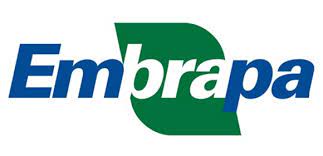LOS BENEFICIOS DE LAS DIETAS VEGETARIANAS EN LAS DISLIPIDEMIAS
DOI:
https://doi.org/10.47820/recima21.v3i11.2071Palabras clave:
Vegetarianismo. Dislipidemias. LDL. HDL.Resumen
El patrón dietético vegetariano, por tener una mayor cantidad de componentes cardioprotectores, como las fibras dietéticas, los ácidos grasos insaturados, como los ácidos grasos monoinsaturados de los frutos secos y las nueces y el aceite de oliva, se ha asociado a una menor prevalencia de dislipidemia. Con el objetivo de investigar si la dieta vegetariana contribuye a mejorar los perfiles lipídicos, se realizó una revisión bibliográfica en las bases de datos PubMed (US National Library of Medicine) y SciELO (The Scientific Electronic Library Online), utilizando las publicaciones más recientes en inglés y portugués. Los estudios analizados observaron una disminución del peso corporal, asociada a una disminución de los niveles de LDL, TC y TG y una mayor disminución del índice de masa corporal (IMC) en los vegetarianos en comparación con los individuos que seguían una dieta omnívora. Dado que la obesidad es uno de los principales factores de riesgo de las enfermedades cardiovasculares (ECV), el IMC medio sustancialmente menor observado en los vegetarianos puede ser un importante factor de protección para disminuir la concentración de lípidos en sangre y reducir el riesgo de ECV. A partir del análisis de los estudios disponibles en la literatura, se observó una influencia positiva de la dieta vegetariana en la mejora del perfil lipídico de la población analizada. Además, la dieta vegetariana parece estar asociada a una menor tasa de desarrollo de enfermedades crónicas y, cuando es seguida por nutricionistas profesionales, presenta una mejor adherencia y adecuación.
Descargas
Citas
BEIG, B.B. A prática vegetariana e seus argumentos legitimadores: o viés religioso. Revista do Núcleo de Estudos de Religião e Sociedade, v. 5, n. 11, p. 1-15, 2009.
BITOK, E.; SABATÉ, J. Nuts and cardiovascular disease. Progress in cardiovascular diseases, v. 61, n. 1, p. 33-37, 2018.
BRASIL. Ministério da Saúde. Alimentação Cardioprotetora Brasileira. 2018.
BURKE, L.E.; HUDSON, A.G.; WARZISKI, M.T.; STYN, M.A.; MUSIC, E.; ELCI, O.U.; SEREIKA, S.M. Effects of a vegetarian diet and treatment preference on biochemical and dietary variables in overweight and obese adults: a randomized clinical trial. The American journal of clinical nutrition, v. 86, n. 3, p. 588-596, 2007.
BUSNELLI, M.; MANZINI, S.; SIRTORI, C.R.; CHIESA, G.; PAROLINI, C. Effects of vegetable proteins on hypercholesterolemia and gut microbiota modulation. Nutrients, v. 10, n. 9, p. 1249, 2018.
CHOLEWSKI, M.; TOMCZYKOWA, M.; TOMCZYK, M.. A comprehensive review of chemistry, sources and bioavailability of omega-3 fatty acids. Nutrients, v. 10, n. 11, p. 1-32 , 2018.
DE BIASE, S.G.; FERNANDES, S.F.C.; GIANINI, R.J.; DUARTE, J.L.G. Dieta vegetariana e níveis de colesterol e triglicérides. Arquivos Brasileiros de Cardiologia, v. 88, n. 1, p. 35-39, 2007.
DINU, M.; ABBATE, R.; GENSINI, G.F.; CASINI, A.; SOFI, F. Vegetarian, vegan diets and multiple health outcomes: a systematic review with meta-analysis of observational studies. Critical reviews in food science and nutrition, v. 57, n. 17, p. 3640-3649, 2017.
ELKAN, A.C.; SJÖBERG, B.; KOLSRUD, B.; RINGERTZ, B.; HAFSTRÖM, I.; FROSTEGÅRD, J. Gluten-free vegan diet induces decreased LDL and oxidized LDL levels and raised atheroprotective natural antibodies against phosphorylcholine in patients with rheumatoid arthritis: a randomized study. Arthritis research & therapy, v. 10, n. 2, p. 1-8, 2008.
GLENN, A.J.; VIGUILIOUK, E.; SEIDER, M.; BOUCHER, B.A.; KHAN, T.A.; BLANCO MEJIA, S.; SIEVENPIPER, J.L. Relation of vegetarian dietary patterns with major cardiovascular outcomes: a systematic review and meta-analysis of prospective cohort studies. Frontiers in nutrition, v. 6, p. 80, 2019.
GROSSO, G.; GALVANO, F.; MARVENTANO, S.; MALAGUARNERA, M.; BUCOLO, C.; DRAGO, F.; CARACI, F.Omega-3 fatty acids and depression: scientific evidence and biological mechanisms. Oxidative medicine and cellular longevity, v. 2014, n. 1, p. 1-16, 2014.
HARGREAVES, S.M.; ARAÚJO, W.M.C.; NAKANO, E.Y.; ZANDONADI, R.P. Brazilian vegetarians diet quality markers and comparison with the general population: A nationwide cross-sectional study. PloS one, v. 15, n. 5, p. e0232954, 2020.
HARTLEY, L.; IGBINEDION, E.; HOLMES, J.; FLOWERS, N.; THOROGOOD, M.; CLARKE, A.; REES, K. Increased consumption of fruit and vegetables for the primary prevention of cardiovascular diseases. Cochrane Database of Systematic Reviews, n. 6, 2013.
JENKINS, D.J.; WONG, J.M.; KENDALL, C.W.; ESFAHANI, A.; NG, V.W.; LEONG, T.C.; SINGER, W. Effect of a 6-month vegan low-carbohydrate (‘Eco-Atkins’) diet on cardiovascular risk factors and body weight in hyperlipidaemic adults: a randomised controlled trial. BMJ open, v. 4, n. 2, p. 1-11, 2014.
JOY, MELAINE. Why we love dogs, eat pigs, and wear cows: An introduction to Carnism. San Francisco: Conari Press, 2010.
KAHLEOVA, H.; MATOULEK, M.; MALINSKA, H.; OLIYARNIK, O.; KAZDOVA, L.; NESKUDLA, T.; PELIKANOVA, T. Vegetarian diet improves insulin resistance and oxidative stress markers more than conventional diet in subjects with Type 2 diabetes. Diabetic Medicine, v. 28, n. 5, p. 549-559, 2011.
KOPIN, L.; LOWENSTEIN, C.J. Dyslipidemia. Annals of internal medicine, v. 167, n. 11, p. 81-96, 2017.
MERLI, I.J.; DE CARVALHO VIDIGAL, F. Perfil antropométrico, dietético e pressão arterial de adultos onívoros e vegetarianos. Nutrición Clínica y Dietética Hospitalaria, v. 40, n. 3, p. 60-68, 2020.
MISHRA, S.; XU, J.; AGARWAL, U.; GONZALES, J.; LEVIN, S.; BARNARD, N.D.A multicenter randomized controlled trial of a plant-based nutrition program to reduce body weight and cardiovascular risk in the corporate setting: the GEICO study. European journal of clinical nutrition, v. 67, n. 7, p. 718-724, 2013.
MOZAFFARIAN, D.; BENJAMIN, E.J.; GO, A.S.; ARNETT, D.K.; BLAHA, M.J.; CUSHMAN, M.; TURNER, M.B. Executive summary: heart disease and stroke statistics—2016 update: a report from the American Heart Association. Circulation, v. 133, n. 4, p. 447-454, 2016.
OLIVEIRA-DE-LIRA, L.; SANTOS, E.M.C.; DE SOUZA, R.F.; MATOS, R.J.B.; SILVA, M.C.D.; OLIVEIRA, L.D.S.; SOUZA, S.L.D. Supplementation-dependent effects of vegetable oils with varying fatty acid compositions on anthropometric and biochemical parameters in obese women. Nutrients, v. 10, n. 7, p. 932, 2018.
OUSSALAH, L.J.; BERTHEZÈNE C.; ALPERS, D.H. Health outcomes associated with vegetarian diets: An umbrella review of systematic reviews and meta-analyses. Clinical Nutrition, v. 39, n. 11, p. 3283-3307, 2020.
SINGER, PETER. Animal Liberation. London: Jonathan Cape, 1976.
SOCIEDADE BRASILEIRA DE CARDIOLOGIA. Diretrizes de Dislipidemias. Rio de Janeiro-RJ, 2017
SOCIEDADE BRASILEIRA DE CARDIOLOGIA. Posicionamento sobre o Consumo de Gordura e Saúde Cardiovascular. São Paulo-SP,2020/2021.
SOCIEDADE VEGETARIANA BRASILEIRA. Vegetarianismo, 2017. Disponível em: https://www.svb.org.br/ . Acesso em: 02 de agosto de 2021.
SOLIMAN, G.A. Dietary fiber, atherosclerosis, and cardiovascular disease. Nutrients, v. 11, n. 5, p. 1155, 2019.
SROUR, B.; FEZEU, L.K.; KESSE-GUYOT, E.; ALLÈS, B.; DEBRAS, C.; DRUESNE-PECOLLO, N.; TOUVIER, M. Ultraprocessed food consumption and risk of type 2 diabetes among participants of the NutriNet-Santé prospective cohort. JAMA Internal Medicine, v. 180, n. 2, p. 283-291, 2020.
SZETO, Y.T.; KWOK, T.C.Y.; BENZIE, I.F.F. Effects of a long-term vegetarian diet on biomarkers of antioxidant status and cardiovascular disease risk. Nutrition, v. 20, n. 10, p. 863-866, 2004.
TEIXEIRA, R.D.C.M.D.A.; MOLINA, M.D.C.B.; FLOR, D.S.; ZANDONADE, E.; MILL, J.G. Estado nutricional e estilo de vida em vegetarianos e onívoros-Grande Vitória-ES. Revista brasileira de epidemiologia, v. 9, p. 131-143, 2006.
WANG F, ZHENG J, YANG B, JIANG J, Fu Y, Li D. WANG, Fenglei et al. Effects of vegetarian diets on blood lipids: a systematic review and meta‐analysis of randomized controlled trials. Journal of the American Heart Association, v. 4, n. 10, p. 1-14, 2015.
WRIGHT, N.; WILSON, L.; SMITH, M.; DUNCAN, B.; MCHUGH, P. The BROAD study: A randomised controlled trial using a whole food plant-based diet in the community for obesity, ischaemic heart disease or diabetes. Nutrition & diabetes, v. 7, n. 3, p. 256-256, 2017.
WENGROFSKY, P.; LEE, J.; MAKARYUS, A.N. Dyslipidemia and its role in the pathogenesis of atherosclerotic cardiovascular disease: implications for evaluation and targets for treatment of dyslipidemia based on recent guidelines. In: Dyslipidemia, v. 3, n. 1, p. 1-31, 2019.
YOKOYAMA, Y.; LEVIN, S.M.; BARNARD, N.D. Association between plant-based diets and plasma lipids: a systematic review and meta-analysis. Nutrition reviews, v. 75, n. 9, p. 683
Descargas
Publicado
Cómo citar
Número
Sección
Categorías
Licencia
Derechos de autor 2022 RECIMA21 - Revista Científica Multidisciplinar - ISSN 2675-6218

Esta obra está bajo una licencia internacional Creative Commons Atribución 4.0.
Os direitos autorais dos artigos/resenhas/TCCs publicados pertecem à revista RECIMA21, e seguem o padrão Creative Commons (CC BY 4.0), permitindo a cópia ou reprodução, desde que cite a fonte e respeite os direitos dos autores e contenham menção aos mesmos nos créditos. Toda e qualquer obra publicada na revista, seu conteúdo é de responsabilidade dos autores, cabendo a RECIMA21 apenas ser o veículo de divulgação, seguindo os padrões nacionais e internacionais de publicação.

 Clique para ver detalhes
Clique para ver detalhes 











